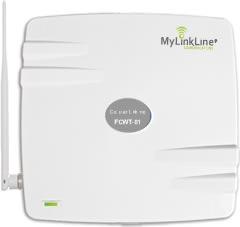Your Ultimate Residential Elevator Guide: 15 Tips
Discover expert insights, top 15 picks, and key buying tips in our residential elevator guide. Make the best choice for your home mobility
Guide for Homeowners Considering Purchasing a Residential Elevator
Owning a residential elevator can significantly enhance the accessibility, convenience, and value of your home. Whether you’re contemplating installing an elevator for the purpose of aging in place, accommodating family members with mobility challenges, or simply adding a touch of luxury to your property, this comprehensive guide will lead you through the process of purchasing a residential elevator.
1. Assess Your Needs and Available Space
Before embarking on the journey of purchasing a residential elevator, it’s crucial to assess your specific needs and the available space in your home. Consider the following factors:
Mobility Requirements: Determine who will be using the elevator and their specific mobility needs. For instance, if you have an elderly family member who struggles with stairs or individuals with disabilities, an elevator can offer them greater independence and freedom of movement.
Number of Floors: Calculate the number of floors you need to connect with the elevator. If your home has multiple levels, you might want to consider an elevator that can efficiently serve all the floors.
Space Availability: Evaluate the layout of your home to identify the best location for the elevator. Think about how the elevator’s installation might impact the existing structure, furniture arrangements, and the flow of your home. Consider both indoor and outdoor options, if applicable.
2. Explore Types of Residential Elevators
Residential elevators come in various types, each offering distinct features and benefits. Understanding the different options will help you make an informed decision:
Traditional Hydraulic Elevators: Hydraulic elevators are known for their smooth and quiet ride. They use a hydraulic piston to lift the elevator cab, making them a reliable choice. These elevators often require a machine room, which might be a consideration for homes with sufficient space.
Machine Room-Less (MRL) Elevators: MRL elevators are a more modern option that eliminates the need for a separate machine room. The machinery is located within the shaft, making them space-efficient and suitable for homes with limited room.
Pneumatic Vacuum Elevators: If you’re looking for a visually striking option, consider pneumatic vacuum elevators. These futuristic elevators use air pressure to move the cab within a transparent tube. They are a unique and space-saving alternative that can become a centerpiece in your home’s design.
3. Consider Your Budget
The cost of a residential elevator varies based on several factors, including the type of elevator, size, features, and installation requirements. In addition to the elevator itself, consider other expenses such as installation, permits, potential structural modifications, and ongoing maintenance. Obtain quotes from reputable elevator companies to compare pricing and ensure that the investment aligns with your budget.
4. Prioritize Safety and Regulations
Safety is paramount when installing a residential elevator. Ensure that the elevator meets all safety codes and regulations set by local authorities. Look for features such as emergency stop buttons, battery backups, door sensors, and phone lines for communication. Working with a certified and experienced installer will help ensure that safety standards are met.
Tip: “An elevator phone is required by code. Incorporating affordable solutions like the MyLinkLine cellular elevator phone lines can lead to significant cost savings. This affordable communication system eliminates the need for traditional landlines and provides a reliable cellular connection for elevator communication.
By eliminating landline costs and associated maintenance, home owners can realize substantial savings over time. Furthermore, MyLinkLine provides a 24-hour phone monitoring service that can be combined with the cellular phone lines to achieve extra cost savings.

5. Choose a Reputable Manufacturer/Installer
Selecting a reputable manufacturer or installer is a critical step in the process. Research companies with a proven track record of quality, reliability, and excellent customer service. Read reviews, request references, and verify that the company is licensed, insured, and knowledgeable about local regulations.
6. Explore Customization and Design
Residential elevators offer customization options to match your home’s aesthetics and your personal preferences. Choose cabin materials, finishes, lighting, and fixtures that complement your interior design. Customization allows you to create an elevator that seamlessly integrates with your home’s overall look and feel.
7. Understand the Installation Process
The installation of a residential elevator involves structural modifications to your home. It’s important to work closely with the installer to create a timeline and understand the scope of the project. Clear communication with your contractor is essential to ensure that the installation proceeds smoothly and any potential disruptions are minimized.
8. Plan for Maintenance and Servicing
Like any mechanical system, residential elevators require regular maintenance to ensure smooth and reliable operation. Inquire about maintenance plans offered by the manufacturer or installer. Regular maintenance will help prevent unexpected breakdowns, extend the lifespan of the elevator, and ensure the safety of its users.
9. Consider Future Resale Value
While you may be purchasing a residential elevator for your immediate needs, it’s also wise to consider how its presence may impact the resale value of your home in the future. Elevators can be attractive selling points, particularly for potential buyers who value accessibility and convenience. However, it’s important to ensure that potential buyers recognize and appreciate the value the elevator adds to the property.
10. Obtain Permits and Ensure Legal Compliance
Before installing a residential elevator, it’s essential to obtain the necessary permits and approvals from your local building department. Building codes and regulations vary from location to location, so ensure that your elevator installation adheres to these guidelines to avoid complications and ensure a smooth process.
11. Benefits Beyond Accessibility
While the primary motivation for installing a residential elevator might be accessibility, consider the additional benefits it brings. Elevators can enhance the overall convenience of your home, making it easier to transport heavy items, groceries, and furniture between floors. They can also add a sense of luxury and sophistication to your property, increasing its overall value and appeal.
12. Environmental Considerations
When choosing a residential elevator, take into account its energy efficiency and environmental impact. Some elevators are designed with energy-saving features, such as LED lighting, efficient motors, and standby modes to conserve energy when not in use. Prioritizing eco-friendly options aligns with sustainable living practices.
13. Future-Proofing Your Home
As you invest in a residential elevator, you’re also future-proofing your home. The elevator ensures that your property remains accessible and functional as you age or as the needs of your family members change. This long-term perspective can offer peace of mind and contribute to the overall value of your investment.
14. Installation Timeline
Discuss the expected installation timeline with your chosen installer. Understand the steps involved, from assessing your space to the completion of the installation. Clear communication and a realistic timeline will help you plan accordingly and minimize any disruptions to your daily life.
15. Financing Options
Exploring financing options is a smart approach to manage the cost of installing a residential elevator. Some elevator companies offer financing plans that allow you to spread out the payments over time. Investigate these options to find a solution that fits your financial situation.
Purchasing a residential elevator is a significant decision that can greatly enhance your home’s accessibility, functionality, and value. By carefully assessing your needs, understanding the available options, and working with experienced professionals, you can confidently navigate the process of selecting, installing, and maintaining a residential elevator that perfectly suits your home and lifestyle.

